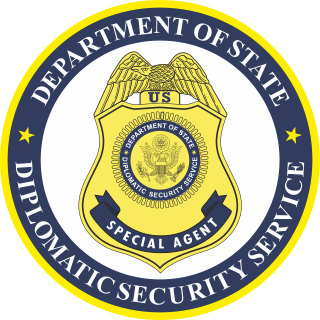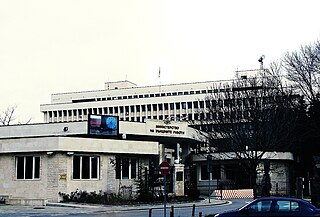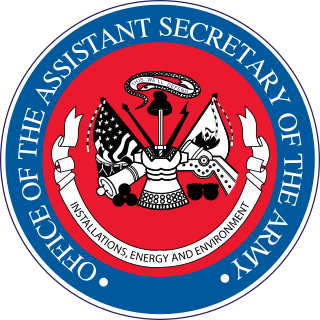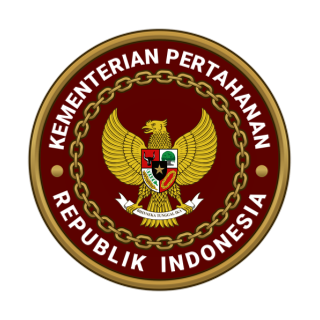Mission
OBO’s mission is to provide the most effective facilities for United States diplomacy abroad and support the Department’s achievement of U.S. foreign policy objectives.
OBO sets worldwide priorities for the design, construction, acquisition, maintenance, use, and sale of real property, as well as the allocation of sale proceeds. As one of the world’s largest and most experienced real estate owners and developers, OBO has a $75B portfolio replacement value and a global presence spanning over 280 locations throughout the world.
As of October 25, 2021, William H. Moser, former Ambassador to Kazakhstan and Moldova, assumed the role of director at OBO.
History
OBO has its origins in the Foreign Service Buildings Commission, which was established in 1926 under the Foreign Service Buildings Act. This legislation granted the Secretary of State the authority to acquire by purchase, construction, or exchange sites and buildings in foreign capitals and other foreign cities; to maintain, repair, improve, and refurbish these properties; and to dispose of properties that become surplus, underutilized, or uneconomical. The act also granted the Secretary of State the authority to provide residential and office space and necessary related facilities to other agencies overseas whose employees are under the authority of the Chief of Mission. The creation of the Foreign Service Buildings Commission was a response to public concerns regarding the state of American diplomatic posts abroad. Over the years, several pivotal events triggered significant changes within OBO and its predecessor organizations.
One such event was the attack on the U.S. embassy in Beirut in 1983, which prompted the Advisory Panel on Overseas Security to charge the then Office of Foreign Buildings Operations with the task of replacing embassies and consulates that failed to meet essential security standards. However, challenges such as the availability of suitable sites and funding led to the abandonment of over a third of the initially planned projects.
Fifteen years later, after the tragic bombings of the U.S. embassies in Nairobi and Dar es Salaam in 1998, the Secretary of State established the Overseas Presence Advisory Panel. This panel was tasked with assessing the United States’ global presence and the condition of the Department's facilities. Their final report contained both broad and specific recommendations for the future of the Department's building program.
Among the observations made in the report were concerns about unsafe, overcrowded, deteriorating, and substandard conditions at numerous U.S. embassies and consulates. The panel's findings also indicated that over 80 percent of diplomatic facilities abroad were vulnerable to future attacks. In response, the Secure Embassy Construction and Counterterrorism Act (SECCA) was enacted in 1999, which enshrined security requirements for Department facilities overseas.
As a result of these developments, the Department elevated the Office of Foreign Buildings Operations to the Bureau of Overseas Buildings Operations. The newly designated Bureau was charged with replacing more than 180 aging embassies that did not meet all security standards, marking an unprecedented endeavor in the Department's history. To achieve this goal, the Department collaborated closely with the Office of Management and Budget and Congress to secure reliable funding commitments. [1]
Program Evolution
OBO’s history is defined by distinct periods or eras. Its initial era was characterized by a focus on adaptivity, involving the acquisition and conversion of extant residential properties for diplomatic purposes before progressing to the deliberate design and construction of purpose-built facilities.
In the subsequent Modern era, facilities were constructed that more aptly embodied U.S. values, including democracy, transparency, and diplomacy with host countries where operational activities were conducted.
The transition into the Security and Excellence era saw a discernible shift towards prioritizing security measures and establishing secure platforms for both property users and visitors.
Currently, OBO is in the Security, Resilience, Stewardship, and Effectiveness era, representing the culmination of the Bureau’s accumulated experience and exemplifying the commitment to provide future-ready, adaptable, and sustainable facilities.
Managing Directorates
Planning & Real Estate
The Planning & Real Estate (PRE) directorate within OBO is responsible for the oversight and implementation of the U.S. Department of State’s building and real estate programs. This directorate focuses on strategically managing real estate for U.S. diplomatic facilities abroad, ensuring that these facilities are located in suitable, secure, and functional spaces, while also adhering to host country regulations and environmental objectives.
The PRE directorate advises the OBO Director on long-range and strategic facility planning and real property programs and policies for the Department of State and the U.S. Government community serving abroad. Additionally, PRE oversees the Department’s asset management program, including real property acquisition and disposal plans, and conducts financial evaluations of properties proposed for acquisition abroad. The directorate is also responsible for strategic facility planning, long-term master planning, property negotiations with foreign governments, the Capital Security Cost-Sharing Program, and reporting Federal Real Property Profile (FRPP) for the State Department. Furthermore, it manages the sale and decommissioning of properties.
Program Development, Coordination & Support
The Program Development, Coordination, and Support (PDCS) directorate within OBO is responsible for overseeing and coordinating programs related to U.S. diplomatic facilities abroad, with a focus on construction and renovation projects. This directorate advises the OBO Director on the development and delivery of funded capital construction and noncapital programs, while ensuring that these projects align with U.S. government objectives, budgets, and schedules. It also provides guidance for selecting architectural and engineering firms for OBO design contracts and formulates criteria, guidelines, policies, and standards to meet its functional responsibilities. The PDCS directorate oversees functional offices that offer design and engineering, cost management, and project management services for assigned projects, contributing to the overall efficiency and success of these initiatives.
Construction & Security Management
The Construction & Security Management (CSM) directorate within OBO is primarily responsible for the construction, security, and maintenance of the State Department's diplomatic platforms across the globe. This directorate formulates management criteria, guidelines, and policies for new office buildings, major renovations, and upgrade projects for Department facilities abroad. These standards encompass security and safety, ensuring the protection and efficient functioning of U.S. diplomatic facilities worldwide.
Operations
The Operations (OPS) Directorate within OBO plays a vital role in ensuring the efficient operation of U.S. diplomatic facilities worldwide. It oversees facility maintenance, repair, and supports small-scale projects at posts abroad. Additionally, OPS provides expert advisory services on facility operations and overseas programs, while actively assisting with Occupational Safety and Health Administration (OSHA) responsibilities on behalf of the Department's Designated Agency Safety and Health Official (DASHO). Serving as a vital liaison between posts, OBO, and regional bureaus, the directorate extends its oversight to specialized offices that collectively address safety, health, environmental management, and cultural matters concerning these facilities. This comprehensive approach ensures the secure, efficient, and culturally resonant operation of U.S. diplomatic platforms worldwide.
Comptroller
The Comptroller of the Bureau of Overseas Buildings Operations (OBO) is a key administrative position responsible for overseeing the bureau's budget and financial management, strategic planning, Congressional reporting, and policy functions. This role involves the management and allocation of financial resources to support OBO's mission and the efficient operation of U.S. diplomatic facilities abroad. The Comptroller plays an instrumental role in shaping OBO's strategic initiatives, ensuring financial accountability, and providing essential reporting and policy guidance to support the bureau's activities.
For over five decades, Art in Embassies (AIE) has played a leading role in U.S. public diplomacy through a focused mission of vital cross-cultural dialogue and understanding through the visual arts and dynamic artist exchange. The Museum of Modern Art first envisioned this global visual arts program in 1953, and President John F. Kennedy formalized it at the U.S. Department of State in 1963. Today, Art in Embassies is an official visual arts office within the U.S. Department of State, engaging over 20,000 participants globally, including artists, museums, galleries, universities, and private collectors. It encompasses over 200 venues in 189 countries. Professional curators and registrars create and ship about 60 exhibitions per year, and since 2000, over 70 permanent collections have been installed in the Department’s diplomatic facilities throughout the world.
Art in Embassies fosters U.S. relations within local communities world-wide – in the last decade, more than 100 artists have traveled to countries participating in AIE’s exchange programs and collaborated with local artists to produce works now on display in embassies and consulates. Going forward, AIE will continue to engage, educate, and inspire global audiences, showing how art can transcend national borders and build connections among peoples.
Office of Cultural Heritage
The Office of Cultural Heritage was established in 2015, under the Bureau of Overseas Buildings Operations. The Office of Cultural Heritage implements a stewardship program for the care of the Department of State’s culturally, historically, and architecturally significant properties and collections through research, conservation, educational programs, exhibit design, and maintenance protocols.
Cultural Heritage staff undertakes research to determine historical significance and conducts condition assessments to inform treatment recommendations for historic properties and collections. The product of this research is used to guide the future management and care of the portfolio of buildings and objects. Information is also shared with the public through outreach and education opportunities such as those found on this website and through programs like the Secretary of State’s Register for Culturally Significant Property.
Using modern technology and drawing on in-house expertise in historic preservation and fine arts conservation, the Office of Cultural Heritage oversees special projects for diplomatic posts abroad when historic buildings and collections are affected. This requires collaboration with and education for facilities managers, OBO design professionals, and outside contractors to meet required preservation codes and best practices.
The Office of Cultural Heritage regularly works with student groups studying historic preservation by hosting them at a historic embassy abroad for a week of learning and research. This exchange allows for a hands-on experience for young preservation professionals and adds to the knowledge about these properties through the student’s findings and presentations.
Whether for an ambassador’s residence, an embassy, or with a public institution, the Office of Cultural Heritage creates exhibits that showcase American diplomatic history around the world. These exhibits utilized the Department of State’s collection of cultural objects and historic buildings as well as partnerships with public and private institutions through loan programs. While many of these guests are only viewable by invited guests to our overseas properties, the Office of Cultural Heritage seeks to make them accessible to the public.

The United States Department of State (DOS), or simply the State Department, is an executive department of the U.S. federal government responsible for the country's foreign policy and relations. Equivalent to the ministry of foreign affairs of other nations, its primary duties are advising the U.S. president on international relations, administering diplomatic missions, negotiating international treaties and agreements, and representing the U.S. at the United Nations. The department is headquartered in the Harry S Truman Building, a few blocks from the White House, in the Foggy Bottom neighborhood of Washington, D.C.; "Foggy Bottom" is thus sometimes used as a metonym.
The Inman Report, formally known as the Report of the Secretary of State's Advisory Panel on Overseas Security, was a report released in 1985 in response to the Marine barracks bombing and the April 1983 US Embassy bombing in Beirut, Lebanon. The report is usually known by the name of its chairman, Admiral Bobby Ray Inman, USN (Ret.)

The First Main Directorateof the Committee for State Security under the USSR council of ministers was the organization responsible for foreign operations and intelligence activities by providing for the training and management of covert agents, intelligence collection administration, and the acquisition of foreign and domestic political, scientific and technical intelligence for the Soviet Union.

The Bureau of Diplomatic Security, commonly known as Diplomatic Security (DS), is the security branch of the United States Department of State. It conducts international investigations, threat analysis, cyber security, counterterrorism, and protection of people, property, and information. Its mission is to provide a safe and secure environment for officials to execute the foreign policy of the United States.

The Diplomatic Security Service (DSS) is the principal law enforcement and security agency of the United States Department of State (DOS). As the operational division of DOS Bureau of Diplomatic Security, its primary mission is to provide security to protect diplomatic assets, personnel, and information, and combat transnational crimes connected to visa and passport fraud. DSS also conducts counterterrorism, counterintelligence, cybersecurity and criminal investigations domestically and abroad.
The Bureau of Consular Affairs (CA) is a bureau of the United States Department of State reporting to the under secretary of state for management. The mission of the Bureau is to administer laws, formulate regulations and implement policies relating to the broad range of consular services and immigration. As of 2021, the bureau is headed by the Assistant Secretary of State for Consular Affairs, Rena Bitter.

The United States under secretary of defense for policy (USDP) is a high level civilian official in the United States Department of Defense. The under secretary of defense for policy is the principal staff assistant and adviser to both the secretary of defense and the deputy secretary of defense for all matters concerning the formation of national security and defense policy.

The Ministry of Foreign Affairs, European Union and Cooperation (MAEUEC) is a department of the Government of Spain in charge of planning, managing, carrying out and evaluating the country's foreign and international cooperation for development policies, paying special attention to the ones in relation to the European Union and Ibero-America, as well as coordinating and supervising all actions done in this areas by the other Ministries and Public Administrations. Likewise, it is responsible for promoting international economic, cultural and scientific relationships, taking part in the proposal and application of the migration policy, promoting cross-border and interterritorial cooperation, protecting Spaniards abroad and preparing, negotiating and processing the international treaties which Spain is part of.
In the United States Government, the Bureau of Administration is part of the U.S. Department of State. The Bureau is responsible for administrative support operations, including procurement; supply and transportation; real property and facilities management; diplomatic pouch and mail services; official records, publishing, and library services; language services; setting allowance rates for U.S. Government personnel assigned abroad and providing support to the overseas schools educating their dependents; overseeing safety and occupational health matters; small and disadvantaged business utilization; and support for both White House travel abroad and special conferences called by the President or Secretary of State. It is headed by the Assistant Secretary of State for Administration.

The Bureau of Diplomatic Technology (DT), formerly the Bureau of Information Resource Management (IRM), is a component of the U.S. Department of State responsible for providing modern, secure, and resilient information technology and services.

The Ministry of Foreign Affairs of the People's Republic of China is the first-ranked executive department of the State Council of the People's Republic of China, responsible for the country's foreign relations. It is led by the minister of foreign affairs, currently Wang Yi, who serves as the nation's principal representative abroad. The ministry is headquartered in Chaoyang District, Beijing, the country's primary diplomatic quarter.

The Ministry of Foreign Affairs is the governmental body responsible for conducting foreign relations of the Republic of Turkey. The Ministry is responsible for Turkey's diplomatic missions abroad as well as providing support for Turkish citizens and promoting Turkish culture. The ministry implements Turkish foreign policy in accordance with the country's national interests. Established on 2 May 1920, its primary duties are administering diplomatic missions, negotiating international treaties and agreements, and representing the Republic of Turkey at the United Nations. The ministry is headquartered in the Turkish capital of Ankara and counts on more than 200 missions as embassies, permanent representation offices and consulates general, abroad. As of 2021, the Ministry of Foreign Affairs maintains 235 diplomatic posts worldwide. The current Minister of Foreign Affairs is Hakan Fidan, who has held the position since 3 June 2023.

The Ministry of Foreign Affairs of Bulgaria is the ministry charged with overseeing the foreign relations of Bulgaria. The seat of the ministry is located at 2 Alexander Zhendov Str in the capital Sofia. It has been in existence since shortly after the Liberation of Bulgaria, with the first minister stepping into office on 17 July 1879. The institution was among the first six ministries of the reestablished Bulgarian state. Until 1947, it was known as the Ministry of Foreign Affairs and Religious Denominations. The Minister of Foreign Affairs is a member of the Government of Bulgaria, also known as the Council of Ministers. The current officeholder Dimitar Glavchev was appointed in April 2024.

The Ministry of Foreign Affairs of the Republic of Belarus is the Belarusian government ministry which oversees the foreign relations of Belarus.

The Ministry of Foreign Affairs of the Republic of Indonesia or commonly known by its abbreviation Kemlu, is an Indonesian government ministry responsible for the country's foreign politics and diplomacy. The ministry was formerly known as the Department of Foreign Affairs until 2008 when the nomenclature changed with the enactment of the 2008 State Ministry Act.

Francis Xavier Taylor was the Under Secretary of Homeland Security for Intelligence and Analysis at the U.S. Department of Homeland Security (DHS), nominated by President Obama in 2014. In that role, he provided the Secretary, DHS senior leadership, the DHS components, and state, local, tribal and private sector partners with homeland security intelligence and information they need to keep the country safe, secure and resilient. DHS Office of Intelligence and Analysis is a member of, and the Department’s liaison to, the U.S. Intelligence Community.

The Assistant Secretary of the Army for Installations, Energy and Environment is a civilian office within the United States Department of the Army.

The Department of State Operations and Embassy Security Authorization Act, Fiscal Year 2014 is a bill that was introduced in the United States House of Representatives during the 113th United States Congress. The bill would authorize $17,573,992,000 to be appropriated to improve the security of U.S. Embassies throughout the world.

The Ministry of Defense is an Indonesian government ministry responsible for the defense of Indonesia. The ministry was formerly known as the Department of Defense until 2009 when the nomenclature changed based on Act Number 39 of 2008 on State Ministries, the name of the Department of Defense was changed to the Ministry of Defense of the Republic of Indonesia. The currently-appointed minister is Prabowo Subianto, replacing Ryamizard Ryacudu on 23 October 2019.
The US Department of Commerce Office of Security is a division of the United States Department of Commerce (DOC) that works to provide security services for facilities of the department. Its aim is to provide policies, programs, and oversight as it collaborates with facility managers to mitigate terrorism risks to DOC personnel and facilities, program managers to mitigate espionage risks to DOC personnel, information, and facilities, and Department and Bureau leadership to increase emergency preparedness for DOC operations.
















